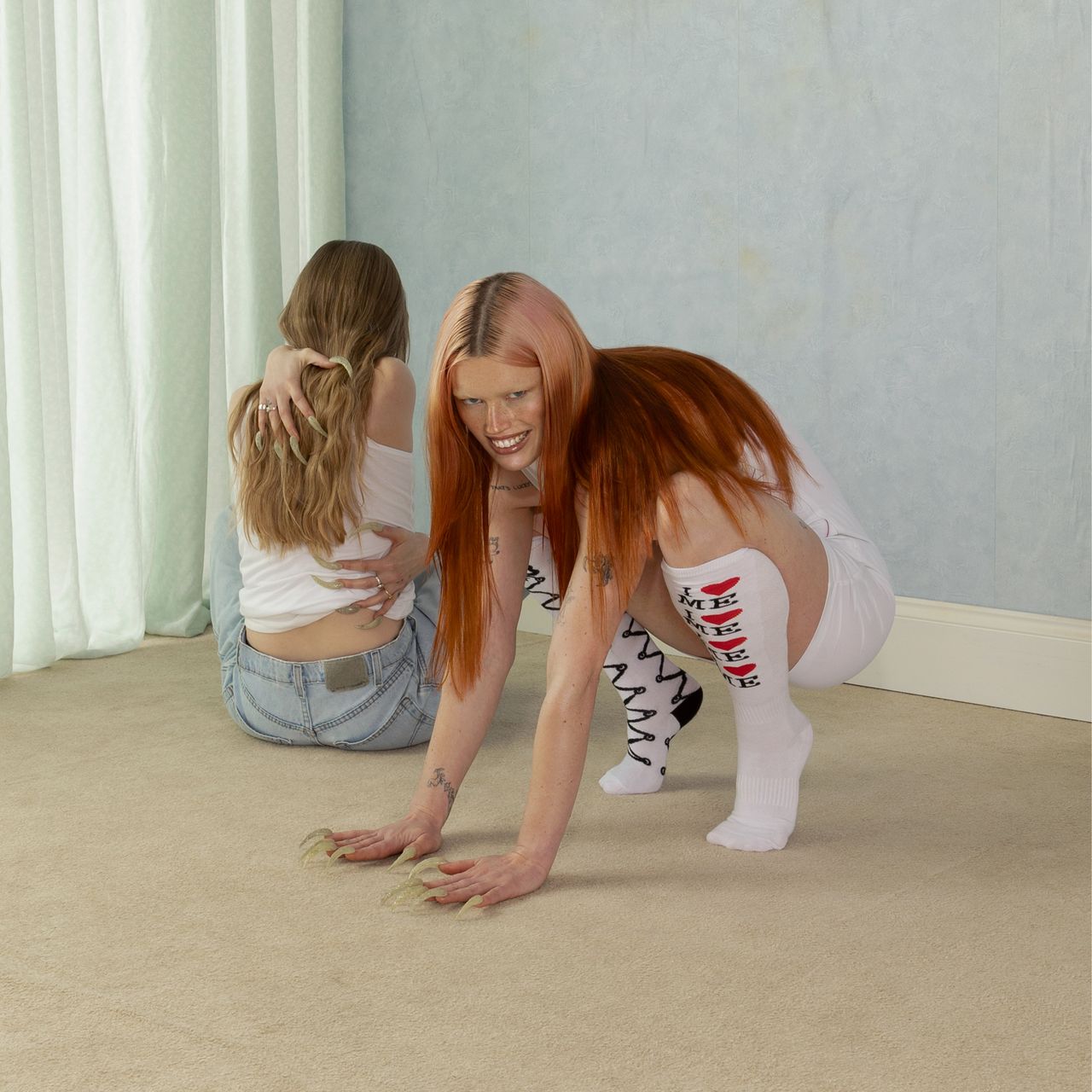Rhian Teasdale is a frontwoman who leans into the uncanny and the strange, never letting you guess her next move. Her vocals get at the spiky discomfort of being vulnerable—like the friend who puts on a silly voice while they’re sharing bad news. On moisturizer, love is a force: It strikes, hits, leaves you gasping for air. For Teasdale, these are “not demure love songs,” but “desperate” ones. She oscillates violently, gleefully between the terror and the wonder of falling for someone. “Call the triple nine and give me CPR,” she sings in a biting falsetto all damsel-in-distress. Moments later, she’s shapeshifted into a deeper, deadpan alter ego, voice booming from the bottom of her chest as she asks: “Is it love or suicide?”
This is a bold new look for Wet Leg, the duo of Teasdale and guitarist and co-writer Hester Chambers, who met while studying music as teenagers on the Isle of Wight, a pastoral island off the south coast of England. They were the band everyone had an opinion on in 2022 after the viral breakthrough of their debut single “Chaise Longue.” Depending on who you spoke to, they were grifters whose success was shaped by industry executives, or the prophesied second coming of 2000s indie sleaze.
Part of their appeal was their unseriousness—frolicking in lobster claws and straw hats, they refused to assign any deeper meaning to their Lewis Carroll-meets-Arctic Monkeys gibberish. That irreverence was intoxicating, in the field of mainstream guitar music in which women are typically sexy, tortured, or both, and rarely afforded the freedom to be simply silly. But beneath all the gags, take-downs, and audacious hooks, there was an enigmatic question mark around who Wet Leg really were.
In the build-up to moisturizer, the band underwent two major changes, creatively and personally. First, they began working more collaboratively as a five-piece, recruiting live musicians guitarist Joshua Mobaraki, bassist Ellis Durand, and drummer Henry Holmes to join the songwriting process. The result is a meatier, more expansive sound, beefed up once again by producer Dan Carey, who’s also worked with Fontaines D.C. and Black Midi.
Second, Teasdale fell in love with her partner, who is non-binary, and discovered her queer identity in the process. Suddenly, writing love songs didn’t feel boring. This seismic shift in Teasdale’s outlook suffuses moisturizer with all the anxious joy of second adolescence. The emotional register of the record is that of someone who’s just been prescribed glasses, and is stunned at seeing clearly for the first time.
